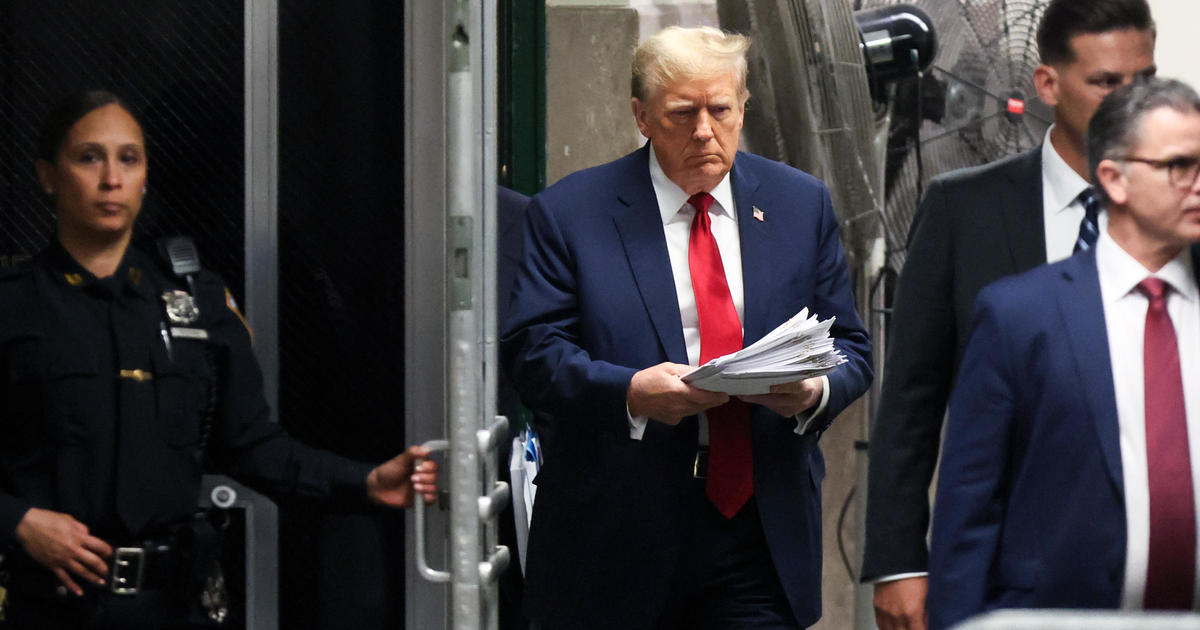GOP lawmaker won't comply with information request from January 6 select committee
Washington — Republican Congressman Scott Perry of Pennsylvania said Tuesday that he will not comply with an information and meeting request from the House select committee investigating the January 6 assault on the U.S. Capitol.
Committee Chairman Bennie Thompson, a Democrat from Mississippi, sent Perry a letter on Monday asking him to voluntarily turn over information he has that would advance its investigation into the events of January 6 and former President Donald Trump's efforts to challenge the outcome of the 2020 presidential election in part by installing Jeffrey Clark, a Justice Department official, as acting attorney general.
The committee also requested Perry provide any communications with Trump, his legal team and others involved in planning the events of January 6 and asked him to meet with panel investigators in the coming days.
"The select committee has tremendous respect for the prerogatives of Congress and the privacy of its members," the Mississippi Democrat said in his letter to Perry. "At the same time, we have a solemn responsibility to investigate fully all of these facts and circumstances."
But Perry, the incoming chairman of the conservative House Freedom Caucus, indicated in a pair of tweets that he will not be cooperating with the select committee, which he said is "illegitimate" and "not duly constituted" under the rules of the House.
"I decline this entity's request and will continue to fight the failures of the radical Left who desperately seek distraction from their abject failures of crushing inflation, a humiliating surrender in Afghanistan, and the horrendous crisis they created at our border," the Pennsylvania Republican tweeted.
A spokesperson for the House select committee said in a statement that Perry has information that is "directly relevant" to its probe.
"While he says that he respects the Constitution and rule of law, he fails to note that multiple federal courts, acting pursuant to Article 3 of our Constitution, have already rejected the former president's claims that the committee lacks an appropriate legislative purpose," the spokesperson said. "The Select Committee prefers to gather relevant evidence from members cooperatively, but if members with directly relevant information decline to cooperate and instead endeavor to cover up, the Select Committee will consider seeking such information using other tools."
Perry, who led the objection to the counting of Pennsylvania's electoral votes, emerged as a figure in an investigation from the Senate Judiciary Committee that examined Trump's efforts to overturn the results of the presidential election.
According to a report issued by the Senate committee in October, Perry introduced Clark to Trump and the three met in the Oval Office on December 23. The committee also found Perry called Richard Donoghue, a senior Justice Department official, at Trump's behest on December 27 to discuss baseless claims of voter fraud in Pennsylvania, and referenced Clark during the call.
The Senate Judiciary panel found Clark urged Justice Department leaders to intervene in Georgia's elections and drafted a letter calling for the Georgia legislature to consider appointing a new slate of presidential electors, though top department officials rejected Clark's proposal.
Thompson said in his letter to Perry that the January 6 select committee received evidence from "multiple witnesses" that he played an "important role in efforts to install" Clark as acting attorney general. The panel found Perry also communicated with Mark Meadows, former White House chief of staff, about Clark through text and Signal, an encrypted messaging app, Thompson wrote.
Clark himself has been a target of the select committee's investigation and received a subpoena from the panel for records and testimony in September. House investigators believe Clark used his position as a high-level Justice Department official to support Trump's efforts to challenge the outcome of the presidential election.
The select committee in December voted to recommend Clark be held in contempt of Congress for defying the subpoena, though Clark told the panel he plans to invoke his 5th Amendment right against self-incrimination in anticipation of a deposition before he committee.
It's unclear whether the January 6 panel will move to subpoena Perry following his decision not to cooperate with their probe voluntarily. Investigators have so far issued at least 50 subpoenas for documents and testimony from a slew of individuals and groups tied to the January 6 assault, including top White House and Trump campaign aides.
The full House has voted to hold two people — Meadows and former Trump adviser Steve Bannon — in contempt of Congress for defying subpoenas from the select committee. Bannon was charged with two counts of criminal contempt of Congress last month.
Nikole Killion contributed to this report



